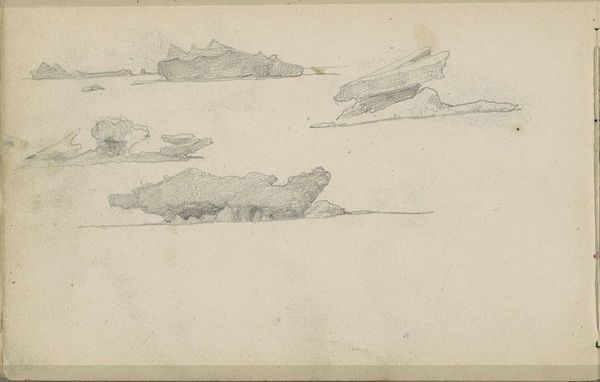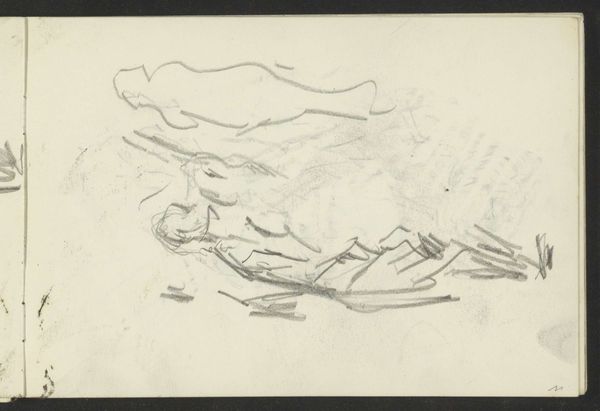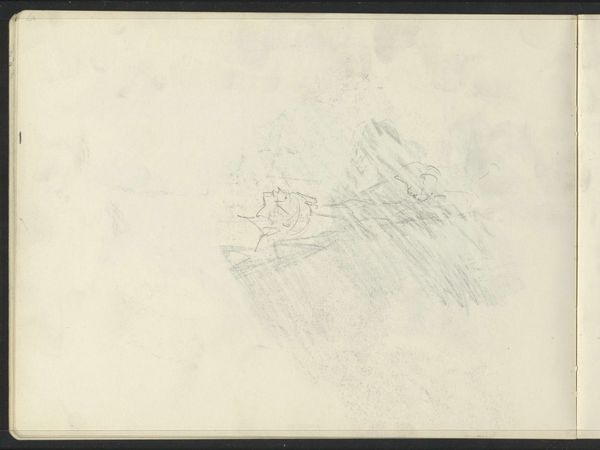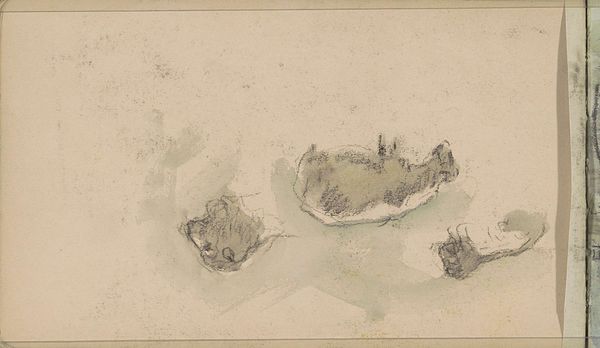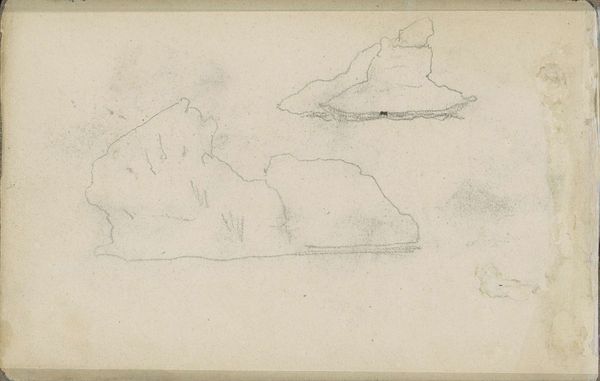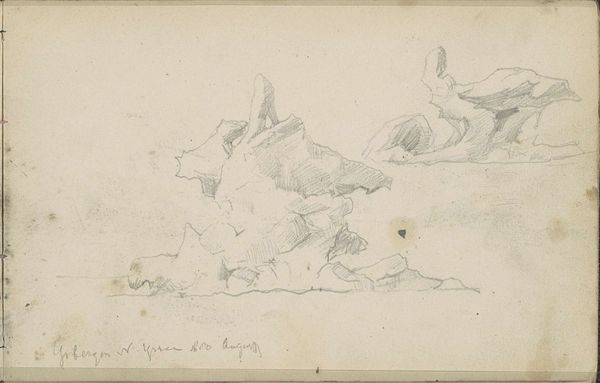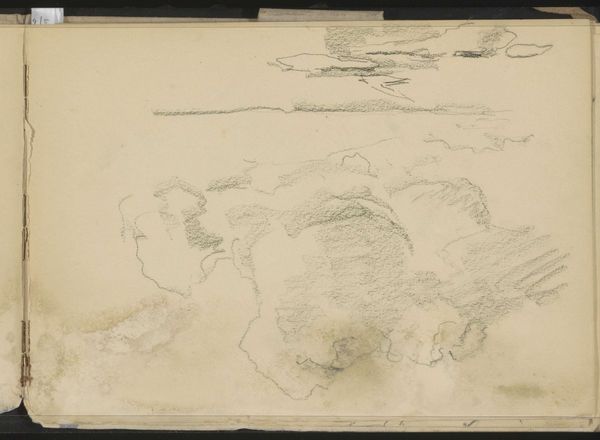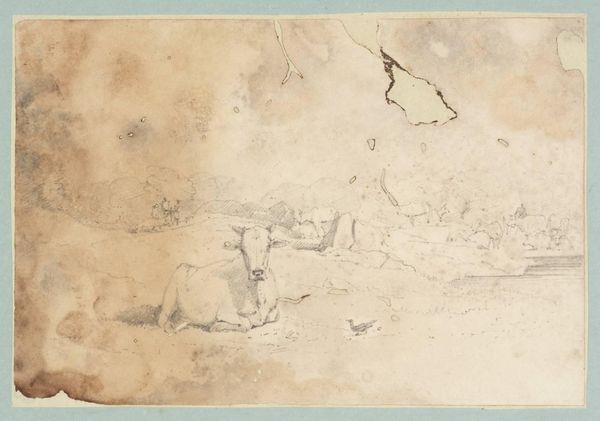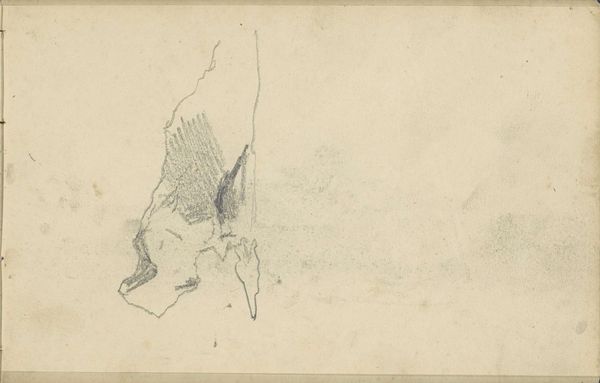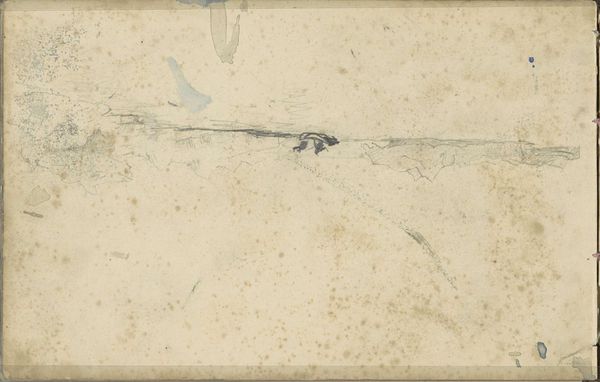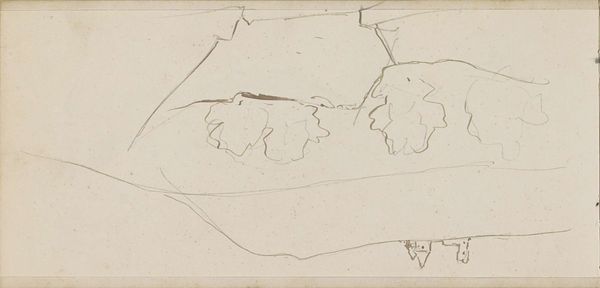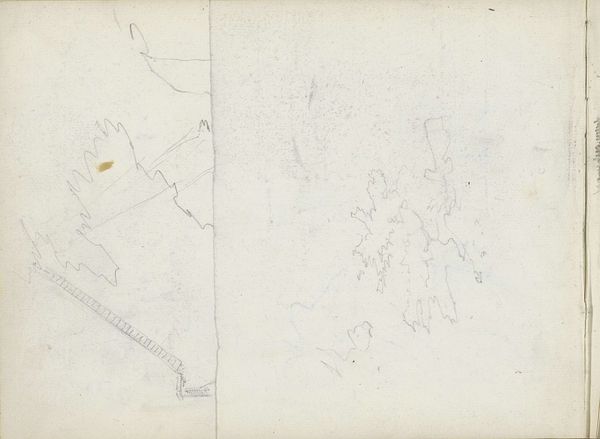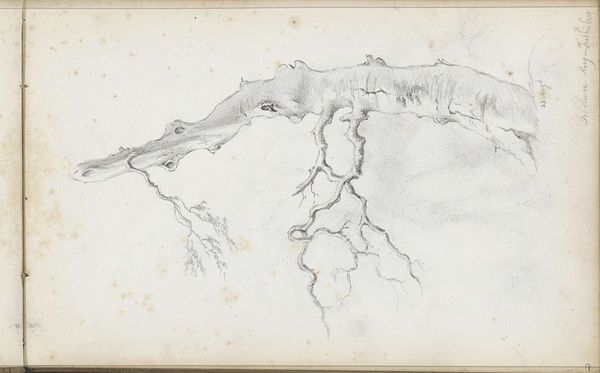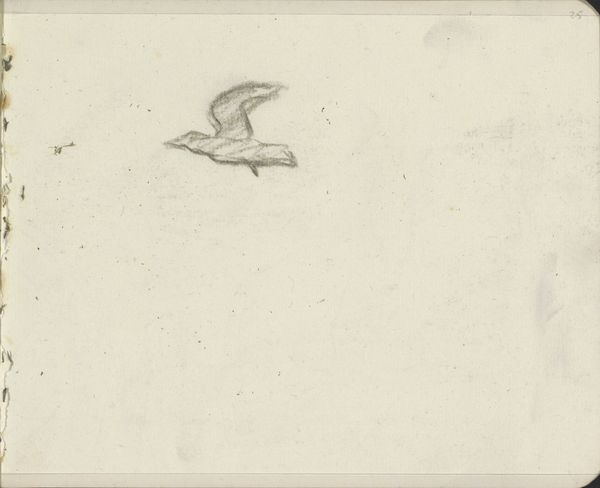
drawing, paper, watercolor
#
drawing
#
landscape
#
paper
#
watercolor
#
watercolor
#
realism
Copyright: Rijks Museum: Open Domain
Curator: There's a real stillness in this one, isn’t there? A watercolor by Louis Apol, from around 1880. It’s called "IJsschotsen," which I believe translates to "Ice Floes." Currently residing at the Rijksmuseum, from what I've gathered. Editor: Brrrr! I can almost feel the chill just looking at it. There’s such a stark contrast, or perhaps it’s the lack of one that gets me. The blues and whites just sort of…bleed. Very melancholy. Curator: It’s fascinating how Apol dedicated so much of his career to winter landscapes, especially when many artists were chasing the sunlight in warmer climates. What was it about the frigid North that captured his imagination? I feel like it was the advent of landscape paintings when realism started permeating society. Editor: Perhaps the emptiness was the point? A reflection of societal constraints? I wonder if he was just fascinated by the fleeting nature of it all? You know, ice changes all the time, especially because global warming started well before scientists could record such drastic changes. Curator: I agree it speaks to impermanence. Nineteenth-century landscape painting often reflected the anxieties and awe inspired by rapid industrialization. The serene, untamed ice floes stand in stark contrast to the grimy factories springing up in the cities. People at the time were desperate for a reminder of how calming nature is, which remains important today. Editor: And watercolor lends itself so perfectly to capturing that ephemeral quality, right? It’s not about sharp lines or photographic detail; it’s about suggestion, implication. Like a memory fading at the edges. How the lack of drastic or dark tones allows for a calm, cool presence, a soothing picture that speaks to the constant stress of the late 1800s. Curator: Precisely. I think Apol captured the quiet drama of the arctic, didn’t he? More than just ice, the essence of our climate. Editor: An exercise in reflection, I dare say. On canvas and in our souls. We’re witnessing what will eventually dissipate, not as a frozen waste, but something powerful that's simply not there. I might need to visit a colder area now!
Comments
No comments
Be the first to comment and join the conversation on the ultimate creative platform.
